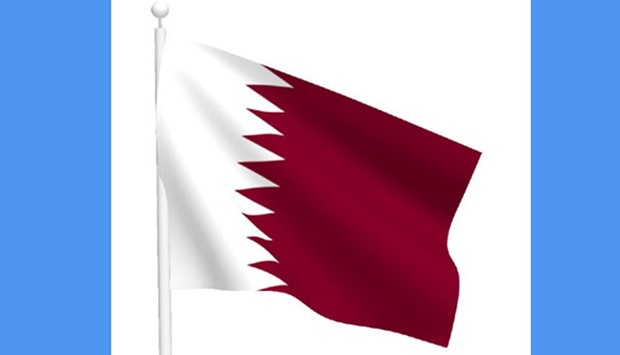Addressing a press conference, Pentagon spokesman Navy Captain Jeff Davis said: “We continue to be grateful to the Qataris for their longstanding support for our presence and their enduring commitment to regional security,” adding the United States had no plans to alter its presence in Qatar.
Unable to reconcile President Donald Trump’s tweets that raised questions about American foreign policy with the military’s praise for Doha’s commitment to regional security, he said: “I can’t help you with that.”
More than 11,000 US and coalition forces are deployed to or assigned to Al Udeid Airbase, from which more than 100 aircraft operate, Reuters said.
Of those 11,000, nearly 1,000 work in a combined air operations centre that helps oversee missions for campaigns in Iraq, Syria and Afghanistan.
The US Department of Defence (Pentagon) said operations “have not been affected either in Qatar or in the airspace around them”. The Pentagon said the Gulf crisis “had no effect on the presence of its forces in the region...expecting that it would have no impact on US-Qatari military co-operation”.
Meanwhile, US Air Force Secretary Heather Wilson told a Senate committee that she was not worried about the US airbase in Qatar, noting that US operations were continuing without interruption.
The US envoy to Qatar, Dana Shell Smith, retweeted on Monday a message from October in which she praised the US partnership with Qatar, citing “real progress to counter terrorist financing.”
A White House spokesman said the US is communicating with all the parties in the Middle East “to resolve issues and restore co-operation”.
“The US still wants to see this issue de-escalated and resolved immediately,” spokesman Sean Spicer told a news briefing.
US officials had said on Monday that America would quietly try to calm the waters between Saudi Arabia and Qatar, arguing that the Gulf state was too important to US military and diplomatic interests to be isolated.
According to analysts, Trump’s latest tweets showed that he was not in line with people in his own administration.
“Just because the president tweets something it does not mean that it is changing the foreign policy. That may sound strange but that’s where we are in this new era of social media.”
As mediation efforts gained momentum, Kuwait’s Emir Sheikh Sabah al-Ahmad al-Jaber al-Sabah left Saudi Arabia yesterday night after what state news agency KUNA described as a “brotherly visit” but there was no word on the outcome of the talks with King Salman bin Abdulaziz.
The Saudi state news agency had earlier reported that King Salman and Sheikh Sabah discussed the “development of events in the region”.
HE the Minister of State for Defence Affairs Dr Khalid bin Mohamed al-Attiyah held a telephone conversation last evening with US Secretary of Defence James Mattis.
“The two sides touched upon the strength of the bilateral relations between the two countries in the field of defence,” Qatar News Agency said.
The US Secretary of Defence thanked Qatar for hosting the US Central Command and the Air Force Command of the Central Region at Al Udeid Air Base.
The two ministers also discussed means of enhancing and developing military relations between the two friendly countries.
US Secretary of State Rex Tillerson had also issued a statement encouraging the parties involved in the Gulf dispute to sit down and address their differences.
On Monday, Dana Shell Smith, US ambassador to Qatar, posted an embassy statement saying that the “US supports Qatar’s efforts in combating terrorism financing, and appreciates its role in coalition against ISIL.”
Russian President Vladimir Putin told HH the Emir of Qatar Sheikh Tamim bin Hamad al-Thani that Russia’s stance remains that crisis situations should be solved by political and diplomatic means, “in dialogue”, the Kremlin said yesterday.
In a phone call, Putin and HH the Emir also discussed co-operation between Russia and Qatar, primarily in economic, trade and investment areas.
Saudi Arabia’s foreign minister Adel al-Jubeir said Qatar must take several steps, including ending its support for the Palestinian group Hamas and the Muslim Brotherhood, to restore ties with other Arab states.
“Nobody wants to hurt Qatar. It has to choose whether it must move in one direction or another direction,” Jubeir told reporters in Paris.



